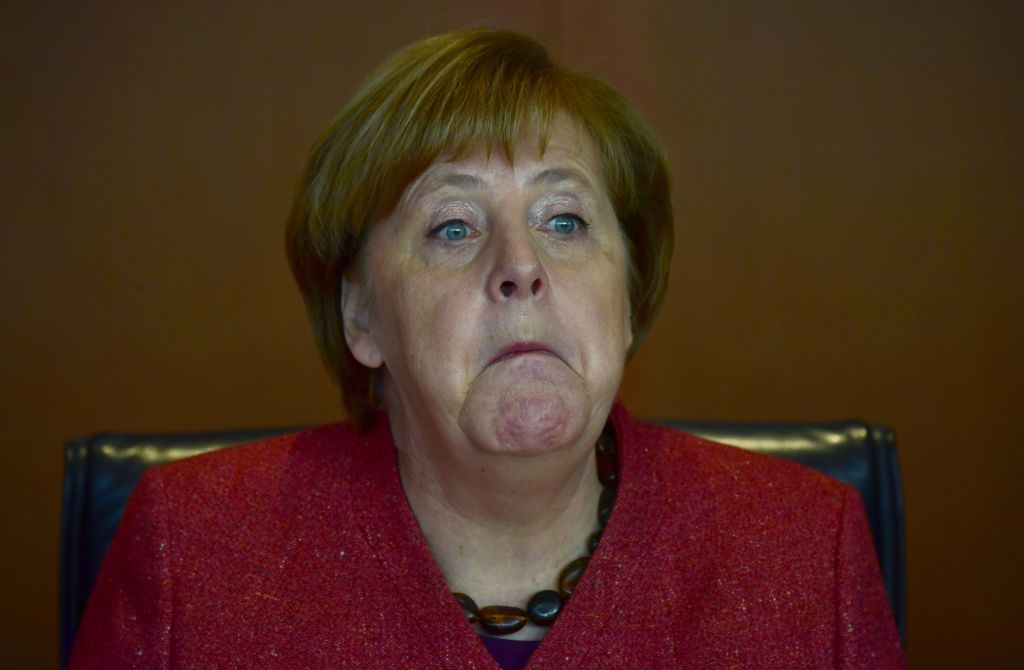German political leaders, industrialists, artists and sportspeople wrote to the Times last week urging Brits to reconsider and stay in the EU. The letter was a mixture of gratitude that Britain had been willing to let Germany rejoin the ranks of civilised nations after the horrors of war, and a rather patronising list of the oh-so-adorable British quirks and foibles: our black humour, our curious habit of drinking tea with milk, drinking ale, driving on the left and pantomimes. But what really struck me was that, for all the warm words, there was no recognition that modern German politics might have played a role in Brexit, let alone a hint of contrition.
In 1978, when Denis Healey was chancellor, he learned from a senior German negotiator that the European exchange mechanism (ERM) was designed to prevent an overvaluation of the Deutsche mark, “thus keeping Germany more competitive and other countries less so”. Although the UK finally did join in 1990, German economic policy of high interest rates underpinning the strength of the Deutsch mark forced it back out again, despite the UK government hiking interest rates dramatically. This caused considerable pain for many British homeowners and businesses, resulting in a sharp recession.
More recently, Germany has continued to put its own economic interests before others, pursuing an illegal trade surplus with the rest of the eurozone. It would be possible for Germany to stimulate eurozone growth through tax cuts and domestic infrastructure spending but there seems little prospect of this happening. Furthermore, it is primarily German opposition to fiscal transfers within eurozone countries which is arguably preventing the proper operation of the single currency. Instead, its policies are sucking demand out of the continent, resulting in perpetual slow growth. Strangely, however, there has not been the same degree of condemnation from the European Commission as there was towards Italy for breaching its obligations on its deficit.
Following the 2008 crisis, Greece was thrown to the wolves by Germany and France. This economic waterboarding of a fellow EU member state for domestic political reasons was a terrible reminder of where power really lies in this supposed union of equals. It is estimated that 95 per cent of the money “lent” to Greece ended up back in the hands of private creditors, mainly European banks. This was not so much a Greek bail-out as a German bail-out.
It was German car companies who lobbied hard for EU legislation supporting diesel engines in cars, arguably to protect their markets against superior Japanese petrol engines. It was those same companies that deliberately broke the law on CO2 emissions testing, giving themselves a competitive advantage and the whole of Europe worse air quality. Similarly, it was German manufacturers of domestic appliances who successfully lobbied the EU to protect themselves from competition, notably from Dyson (this was recently overturned in the ECJ).
It is also Germany (among others) that is preventing the completion of the single market in services by restricting access to certain professions through domestic regulation. They have also been accused of breaching rules on the free movement of capital by, among other means, holding “golden shares” in Volkswagen. When the EU talks of the four freedoms (of people, capital, goods and services) being sacrosanct, it is worth noting that Germany chooses not to play by the rules when it suits, to the particular disadvantage of the UK with its strengths in services and capital.
In terms of military and diplomacy, Germany’s recent record isn’t much to brag about. Germany is still nowhere near meeting its obligations of two per cent of GDP contribution to Nato. The country also has only four fighter jets available to fly, and continues to freeload on the USA and the UK for its security.
Germany also continues to undermine collective defence of Europe by pressing ahead with the Nordstream 2 pipeline for gas from Russia (not coincidentally, the former German chancellor, Gerhard Schroeder is a director of the project). This pipeline could allow Russia to cut off gas supplies to Poland and Ukraine should it choose to do so. Germany has also reportedly cut sweetheart deals with Gazprom for cheap gas, which is also in breach of EU rules.
And while the great and the good in Germany are urging Britain to return to the EU fold, it’s worth remembering Angela Merkel’s contribution in leaving David Cameron isolated. Back in 2009, Merkel refused to block Jean-Claude Juncker from becoming EU president for her own domestic interests, despite specific pleas from Cameron not to install a federalist. She was also unwilling to help produce any meaningful outcomes in Cameron’s renegotiation in the early months of 2016. It is also beyond doubt that Merkel’s unilateral open invitation to migrants and refugees sparked the migrant crisis which was the backdrop to the Brexit vote.
So, for all of those people who said Brexiteers were naïve in expecting Germany to come to their aid in ensuring a good deal – well, they were right, weren’t they? Or does friendship mean only that the UK must do what Germany demands? The warm words from Germany’s leaders are welcome but no other country has done as much to create the conditions for Brexit as Germany with its focus on its own narrow interests.






Comments